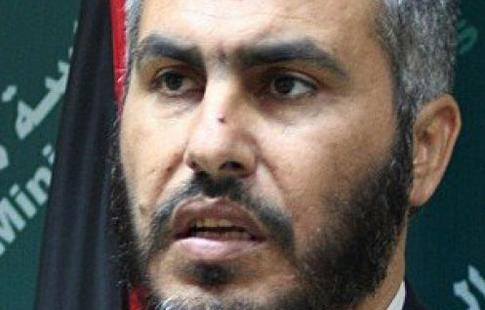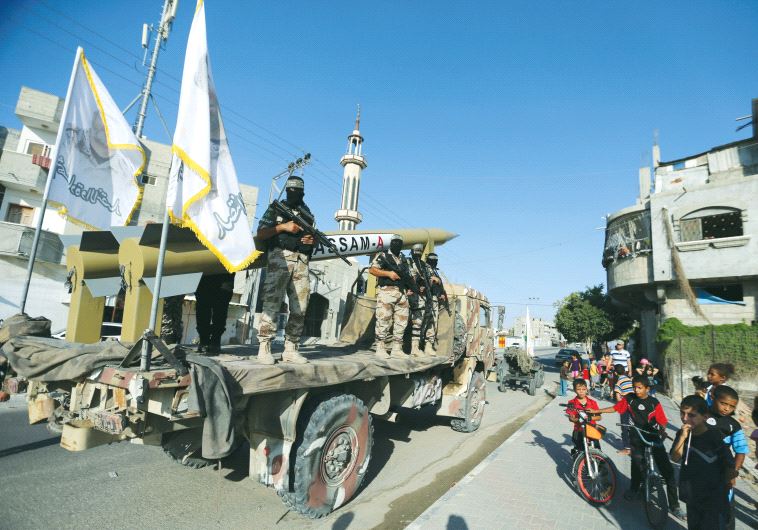James Addison Baker III (born April 28, 1930) served as the Chief of Staff in President Ronald Reagan’s first administration and in the final year of the administration of President George H. W. Bush. Baker also served as Secretary of State in the George H. W. Bush administration.
In 1988, Baker blocked the creation of Palestine by threatening to cut funding to agencies in the United Nations. The Palestine Liberation Organization (PLO) issued a “declaration of statehood” and changed the name of its observer delegation to the United Nations from the PLO to Palestine.
Secretary of State James Baker warned publicly, “I will recommend to the President that the United States make no further contributions, voluntary or assessed, to any international organization which makes any changes in the PLO’s status as an observer organization.”
On May 22, 1989, Baker told at an AIPAC audience, that Israel should abandon its expansionist policies; this remark took many as a signal that the pro-Israel Reagan years were over. After the Gulf War on March 6, 1991, President Bush Sr. addressed Congress in a speech often cited as the Bush administration’s principal policy statement on the new order in the Middle East following the expulsion of Iraqi forces from Kuwait.The centerpiece of his program, however, was the achievement of an Arab-Israeli treaty based on the territory-for-peace principle and the fulfillment of Palestinian rights.
View James Addison Baker III shares his views on the Madrid Conference
As a first step Bush announced his intention to reconvene the international peace conference in Madrid. The Bush administration believed there was a window of opportunity to use the political capital generated by the U.S. victory in the Gulf War to revitalize the Arab-Israeli peace process. This peace initiative focused on convening a multi-party international conference that would then break into separate, bilateral and multilateral negotiating tracks. Baker made eight diplomatic visits to the region to get support for the conference. A framework of objectives was formulated and the U.S., together with the Soviet Union, extended a letter of invitation, dated 30 October 1991 to Israel, Syria, Lebanon, Jordan, and the Palestinians.
Secretary Baker made frequent shuttle trips to the region between March and October 1991 in an attempt to find a procedural formula acceptable to all sides. He did not have an easy time finding the right formula to convene the conference, particularly on the issue of Palestinian representation.
The Madrid Conference of 1991 was a peace conference, held from 30 October to 1 November 1991 in Madrid, hosted by Spain and co-sponsored by the United States and the Soviet Union. It was an attempt by the international community to revive the Israeli–Palestinian peace process through negotiations, involving Israel and the Palestinians as well as Arab countries, including Jordan, Lebanon and Syria.
The Palestinian team was part of a joint Palestinian-Jordanian delegation and consisted of Palestinians from the West Bank and Gaza. It was formally without overt PLO associates like Saeb Erekat and Haidar Abdel-Shafi, the head of the delegation.
The purpose of the conference was to serve as an opening forum for the participants and had no power to impose solutions or veto agreements. It inaugurated negotiations on both bilateral and multilateral tracks that also involved the international community. The Syrian and Lebanese negotiators agreed on a common strategy.
On 3 November 1991, the conference was followed by bilateral negotiations between Israel and respectively the joint Jordanian-Palestinian delegation, Lebanon and Syria. Subsequent bilateral meetings took place in Washington from 9 December 1991. On 28 January 1992, multilateral negotiations about regional cooperation were started in Moscow, attended by Israel, the Jordanian-Palestinian delegation and the international community, but without Lebanon and Syria.
It was the last conference held with both the USSR and US present; the USSR collapsed later that year in December 1991.
The Madrid Conference was followed by two parallel tracks of negotiations. The bilateral track was aimed at achieving peace treaties between Israel and its three neighbor states Jordan, Lebanon and Syria as well as with the Palestinians. The multilateral track was about the shared regional issues water, environment, arms control, refugees and economic development.
Four separate sets of bilateral negotiations started on November 3, 1991, right after the formal conference ended. Twelve meetings in Washington followed. The first one on December 9, 1991; the last one on January 24, 1994, four months after the conclusion of the Oslo I Accord.
The bilateral Israeli-Palestinian negotiations did not go well under the Shamir government. The Madrid negotiations were later upstaged and eventually replaced by, initially secret, negotiations following the 1992 Israeli election, during which Rabin and Labor pledged to end Shamir’s settlement policy and reformulate national priorities.
The multilateral negotiations were scheduled two weeks after the opening of the conference, but the first meeting in Moscow took place only on January 28–29, 1992. In its opening statement, the Palestinian delegation voiced sharp criticism on the Israeli settlement activities and repressive practises in the Occupied Territories since the Madrid Conference. The meetings were held in five separate forums each focusing on a major issue – water, environment, arms control, refugees or economic development. The European Union took part in the meetings.
The meetings took place between September 1992 and November 1993. The first round took place in May 1992. Israel boycotted the groups on refugees and economic development, because Palestinians from outside the West Bank and Gaza were present. Syria and Lebanon refused to take part in multilateral meetings as long as there was no concrete progress on the bilateral level.
Formal talks in the multilateral track, which had been frozen for several years, resumed on January 31, 2000, with a meeting of the Steering Committee in Moscow, to be followed by meetings of the working groups. After this round, however, the formal talks were stalled.
In the negotiations leading to Madrid, Israel made revocation of UN Resolution 3379 a condition of its participation in the conference; this was accomplished shortly thereafter, with the passage of Resolution 46/86, on December 16, 1991. Israel also cites, as a major benefit of the conference and the peace process, the greatly increased number of countries which recognize and have some degree of diplomatic relations with it – nearly doubling – in particular citing the major powers of China and India and some even in the Arab world, like Oman, Qatar, Tunisia, Morocco and Mauritania, along with the decline of the Arab boycott and economic relations with some of the Arab countries.
The symbolic significance of the Madrid conference far outweighed its accomplishments, which were thin indeed. Nevertheless, an example had been made and a future model had been laid down, as the Madrid conference represents the first time all these countries had been gathered “face-to-face”.
At the end of the Madrid conference all participating countries appeared hopeful that the conference had resulted in a future road-map for reconciliation. The closing remarks presented below illustrate this hopeful sentiment:
Israeli Prime Minister Yitzhak Shamir , 1 November 1991
“With an open heart, we call on the Arab leaders to take the courageous step and respond to our outstretched hand in peace”
Head of the Palestinian Delegation, Haydar Abd al-Shafi, 1 November 1991
“To the cosponsors and to the international community that seeks the achievement of a just peace in the Middle East, you have given us a fair hearing. You cared enough to listen and for that we thank you. Thank you.”
The bilateral Israeli-Palestinian negotiations eventually led to the exchange of letters and the subsequent signing of the Oslo I Accord, on the lawn of the White House on September 13, 1993. The Israel-Jordan negotiations that emanated from the Madrid conference, led to a peace treaty in 1994. The Israeli-Syrian negotiations included series of follow-on meetings, which according to some reports, came quite close, but failed to result in a peace treaty.


